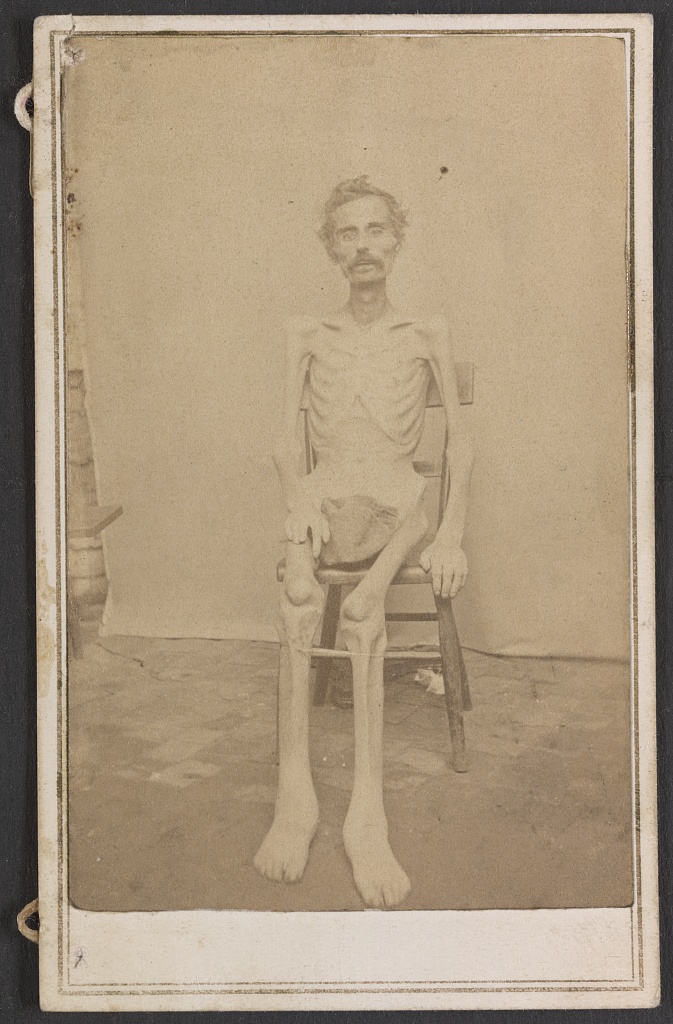Foreword
Section 37 begins as if it is continuing the story of the Battle of Flamborough Head that the previous two sections narrated. But then something strange and terrifying happens. The confident “I” that we have become accustomed to in “Song of Myself” now seems to have been taken over, literally “possessed.” That “I” has certainly, earlier in the poem, shared pain with those who suffered, empathized with the dead and dying, and even taken on the identity of the maimed and tortured (“I do not ask the wounded person how he feels, I myself become the wounded person”), but now, instead of absorbing and possessing others, the “I” itself is possessed, taken over by “all presences outlaw’d or suffering,” feeling “the dull unintermitted pain,” experiencing the claustrophobic despair of imprisonment. The catalog in Section 33 moved inexorably toward pain, loss, and darkness, then the poem slowed down to historical narrations of massacres and mass death. And now, in this section, everything comes to a stop as Whitman is overtaken by all the convicts and mutineers of the world, chained to them and fully identified with them. If Whitman’s democratic self is dedicated to the idea that each individuality is potentially any other individuality, that we contain within each of us the vast diversity of selves that make up the culture, then this section seems to test just how far that absorptive identity can go. Identifying with others is not always a unifying and celebratory act; it can be just as easily an act of humiliation and defeat. It is not easy or comfortable to become truly democratic, and the effort to do so will always be marked by trials.
Identifying himself fully with the desperately sick, with the desperately poor, with the desperately convicted, the poet feels himself sapped of his strength and magnetism and energy, as he becomes isolated, ashamed, and repellent. He ends this section as a beggar: “I project my hat, sit shame-faced, and beg.” Imagine if “Song of Myself” ended here. It would be as if the whole democratic experiment that generates this poem had shattered, as the confident absorptive self stalls, now fully identified only with those who have failed. The Whitmanian self here is no longer the expanding, celebratory, ever-widening soul, but rather a soul that has contracted into a being who, instead of projecting his self throughout the world (remember the “landscapes projected masculine full-sized and golden” in Section 29), can now only “project” his hat in an agonized and humiliating gesture of abjection.
E.F.
- Foreword to Section 37
- Song of Myself, Section 37 —read by Eric Forsythe
- Afterword to Section 37
Afterword
Thence to the pit… Whitman’s identification with convicts, cholera victims, and beggars recalls the example of Jesus, whose ministry to the poor and outcast riled the Jewish priesthood no less than the Roman imperial authorities. Indeed this section and the next may be read as glosses on the New Testament theme of kenosis, the emptying of the self to become a receptacle for God’s will. “O Christ! My fit is mastering me!” Whitman cries in the 1855 version, and then adopts in turn the personae of a rebel adjusting the noose around his neck, a defiant savage, a visitor to the tomb of George Washington, a boy recalling prison ships, a redcoat surrendering at Saratoga. “I become any presence or truth of humanity here,” he declares, “And see myself in prison shaped like any other man,/ And feel the dull unintermitted pain.”
The prison and the pain are all that remain in the deathbed edition—this is the same pain experienced by the wounded in the previous section—and if Whitman’s decision to excise the explicit Christian reference is understandable (his poem is intended to supersede all religious texts) it is nevertheless a pity that he abandoned his recollection of the bay, near his childhood home, where British prison ships moored during the Revolutionary War—rotting hulks in which more soldiers and sailors died of neglect than in all the battles of the war. “These become mine and me every one,” he wrote in the first edition, “and they are but little,/ I become as much more as I like.” If the Son of Man’s witness to lepers and prostitutes, the lowest of the low, shaped the thinking of this poet possessed of the forgotten and the lost, the tradition continues in the practice of the contemporary American writer and Zen priest Peter Matthiessen, who with his fellow adepts cares for the most neglected members of society, homeless men suffering from AIDS. This is what Whitman teaches us to do when he takes on the burden of the cholera patient: “away from me people retreat”—and yet they cannot go very far, because he will not let them out of his sight. Nor will his poem.
C.M.
Question
Today, many humanitarian-aid organizations use film of children suffering in famines or children with diseases and deformities that medical care could correct. Such ads try to make you identify with the suffering and pain of people distant from you so that you will support organizations that work to ease the starvation and suffering. Do these attempts to manufacture empathy work? What is the effect on our daily lives of being asked to identify with the pain and suffering of others? Does Whitman’s Section 37 offer a compelling record of the costs of taking on such pain and humiliation?

